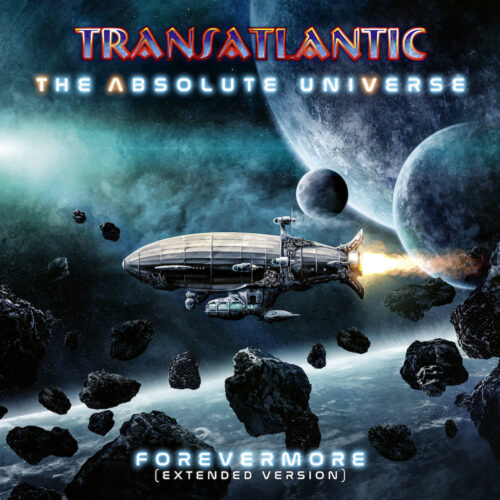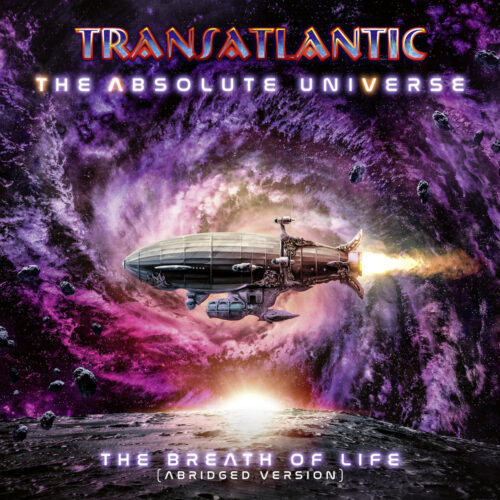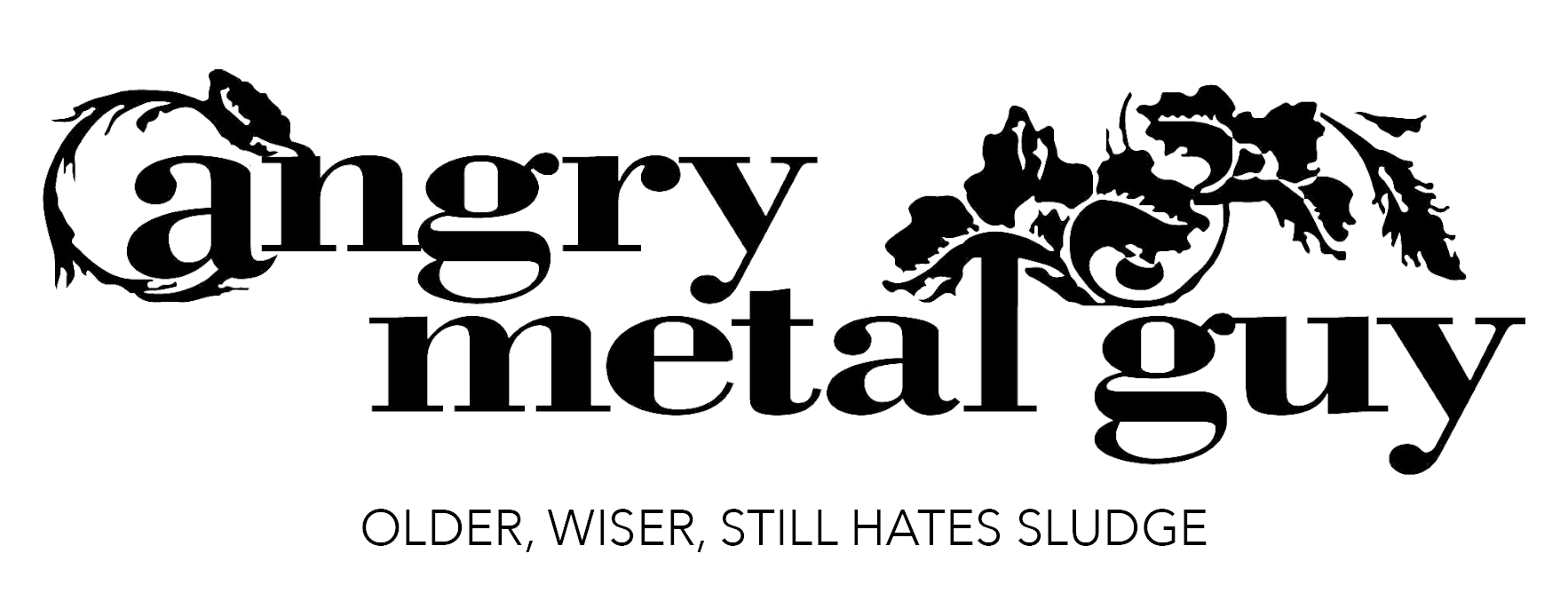 I’ll admit that I used to be a fan of Dream Theater. Many of their songs and albums are fantastic, and I will never deny their talent. Watching them play live is one of the more mesmerizing experiences I’ve ever had. Interestingly, though, the albums I find to be their best aren’t always the same as the diehard fans. The back-to-back-to-back Metropolis Pt. 2: Scenes From a Memory, Six Degrees of Inner Turbulence, and Train of Thought are my favorite. To me, the first record shows the entire band at its pinnacle. And Six Degrees of Inner Turbulence was the beginning of something much heavier. That heaviness exploded on Train of Thought and Octavarium. But, it was at this time that I realized James LaBrie’s voice no longer worked. At least not with Petrucci and Portnoy’s heavy writing. Then Octavarium dropped, and it failed to keep me hooked. Then came the drama of Portnoy leaving/being-asked-to-leave and, as you guessed, I gave up on the band. The bullshit turned me off to all those clowns. That said, a part of me still had to check out Portnoy’s new projects as they surfaced.
I’ll admit that I used to be a fan of Dream Theater. Many of their songs and albums are fantastic, and I will never deny their talent. Watching them play live is one of the more mesmerizing experiences I’ve ever had. Interestingly, though, the albums I find to be their best aren’t always the same as the diehard fans. The back-to-back-to-back Metropolis Pt. 2: Scenes From a Memory, Six Degrees of Inner Turbulence, and Train of Thought are my favorite. To me, the first record shows the entire band at its pinnacle. And Six Degrees of Inner Turbulence was the beginning of something much heavier. That heaviness exploded on Train of Thought and Octavarium. But, it was at this time that I realized James LaBrie’s voice no longer worked. At least not with Petrucci and Portnoy’s heavy writing. Then Octavarium dropped, and it failed to keep me hooked. Then came the drama of Portnoy leaving/being-asked-to-leave and, as you guessed, I gave up on the band. The bullshit turned me off to all those clowns. That said, a part of me still had to check out Portnoy’s new projects as they surfaced.
Being a big fan of Spock’s Beard, it was cool to see him team up with Neal Morse on that man’s many projects. Even the dream-team thrash outfit of Metal Allegiance is fun. But Transatlantic is Portnoy’s baby. Yet, Transatlantic is one of the more pretentious groups I’ve ever heard. When I first realized that the debut record, SMPTe, was the first letter of each member’s surname, I rolled my eyes so hard I fell off a bridge. Even so, this foursome knows how to play, and Portnoy has made himself a diverse drummer that can play many styles. So, when we got Transatlantic’s The Absolute Universe, I had to partake. I mean, who else would be dumb enough to review a three-disc record?

Well, the question could be: Who would be dumb enough to write it? Because there’s a twist. This isn’t a triple album. Instead, it’s two albums with the same name and sorta the same material. One of the albums is an hour long, and the other an hour-and-a-half. The first is the “abridged” version (The Breath of Life), and the latter is the “extended” one (Forevermore). I’m not kidding. And, like all Transatlantic releases, it’s soothing, straightforward progressive rock. There’re no bangers, fretboard-destructive solos, or those meaty DT transitions. Both albums are four musicians doing their thing. If “that thing” is your thing is something else entirely. But why make two versions of the same album? It’s not like this is the Bible, watered down for the beginner and packed with every confusing detail for the veteran. I’ve spent two weeks and dozens of listens of each to figure that out. So, let me tell you about them. Brace yourselves. This might take 2.5 hours to read.
OK, if you know Transatlantic, you know what to expect. The Absolute Universe is progressive rock in the truest sense of the word. But, if anyone could turn me to God, it’d be Neal Morse. Though the vocals are shared throughout, Morse’s voice makes even the dullest song sparkle. But some of the other vocals are so distracting they almost derail a perfectly good song. For example, “The Darkness in the Light.” This is one song that both albums share. And, if you can get past the first-half’s annoying, whiny vocals, you’ll find a pleasant song in the end—redeeming itself with a catchy chorus, soothing overlapping vox, and building emotion. Oddly enough, it’s the vocals of most of the “shared” songs that bother me the most. Like “The Darkness in the Light,” “Solitude” has some awful, nose-pinched vocals at the beginning. But, it somehow redeems itself as well. “Belong” and “The Greatest Story Never Ends” also have odd, if not interesting, moments in the vox. The first has weird-ass child yodling that I don’t understand and loathe, while the vocals of “The Greatest Story Never Ends” are impressive, if not a bit cheesy. The latter’s vocals sling-shot off each other like Queen’s “Bohemian Rhapsody.” But, it’s nowhere near as good.
It’s interesting to note that the two versions aren’t the same songs in different lengths. There’re a couple of differences between the two records. For one, everything I’ve already mentioned was mostly from Forevermore. The songs with the same titles on The Breath of Life might be a touch different lyrically or have a different vocalist altogether. Other differences are that Forevermore has a catchy duo in “Swing High, Swing Low” and “Bully.” Back-to-back, these two act as an energetic Part 1 and Part 2 to each other. “The World We Used to Know” is another extended cut that ends the first disc perfectly.1 Sadly, there are some forgettable numbers between the two versions. The Breath of Life has “Reaching for the Sky” and “Can You Feel It,” while the Forevermore has “Lonesome Rebel.” I can barely remember any of them. Unfortunately, what I’ve found from listening to these records repeatedly is that the more-overlapping songs are the strongest and, for obvious reasons, the most memorable. Though every shared piece has some subtle modification, they still have a LOT of similarities. Which, for better or worse, means you’re kinda listening to the same songs over again.

But some of the songs are worth a couple of spins. While “The World We Used to Know” is a great, passion-filled piece, the closer trumps it. “Love Made a Way” is the closer for both versions, and you can tell why. This is one of the best tracks on the album and a fantastic way to end it. And I like the foreshadowing earlier in the albums from “Love Made a Way (Prelude).” Again, there are differences in delivery here. That said, they’re pretty much the same song, so, again, I don’t quite understand why we need two versions. That also goes for songs like “Higher Than the Morning,” “Looking for the Light,” “Owl Howl,” and “Looking for the Light (Reprise).” The more I think about it, I’d take Forevermore and skip The Breath of Life altogether. Sure, it’s an hour-and-a-half of velvet-cushioned lounge prog, but at least it’s the full picture. Or, as I’ve come to discover, just buy the box set. Apparently, the band has put together a third version, The Ultimate Edition, that combines the other two.
And I guess that’s the biggest problem I have with these records. I actually think I could manage and enjoy the extended version without its mini-me. Aside from some of the awful, tinny vocals, the band has put together a rather solid collection of songs. Especially if it’s reasonably priced. Unfortunately, there’s filler and some rather dull moments. I want to think they could have pieced together a much stronger release between the two versions. I get it, they are masters of their craft but 150 minutes of music is quite the thing to drop on people.2 Much less a three-disc set that’s actually just the same album with bonus tracks. The other problem is that Portnoy isn’t that good of a songwriter. Especially with this much material. He hasn’t exactly written 150 minutes of riveting prog. Yet, the instrumentation is fantastic, most of the vocals are great, and the mix is quite enjoyable. And, for what it’s worth, I don’t hate it. I just think it’s excessive.
Rating: 2.5/5.0
DR: 9 | Format Reviewed: 320 kb/s mp3
Label: InsideOut Music
Websites: transatlanticweb.com | facebook.com/transatlanticmusic
Releases Worldwide: February 5th, 2021

















